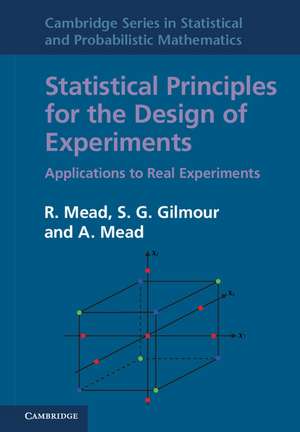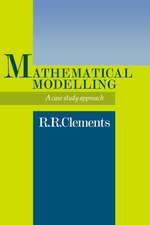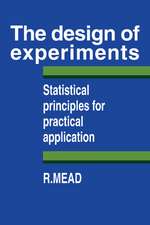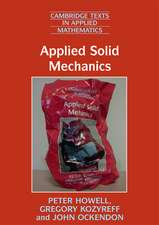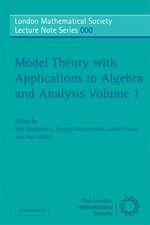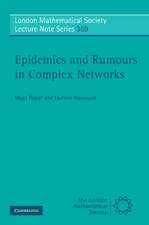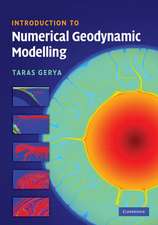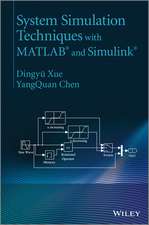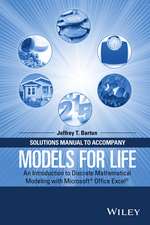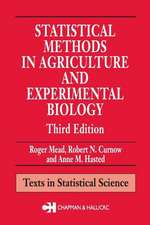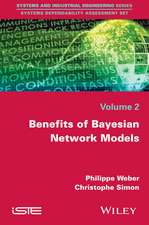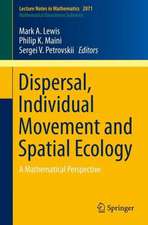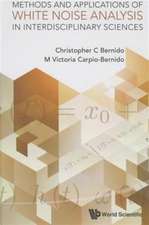Statistical Principles for the Design of Experiments: Applications to Real Experiments: Cambridge Series in Statistical and Probabilistic Mathematics, cartea 36
Autor R. Mead, S. G. Gilmour, A. Meaden Limba Engleză Hardback – 12 sep 2012
Din seria Cambridge Series in Statistical and Probabilistic Mathematics
- 8%
 Preț: 393.36 lei
Preț: 393.36 lei - 8%
 Preț: 500.68 lei
Preț: 500.68 lei - 20%
 Preț: 282.30 lei
Preț: 282.30 lei -
 Preț: 273.60 lei
Preț: 273.60 lei -
 Preț: 310.95 lei
Preț: 310.95 lei - 8%
 Preț: 420.34 lei
Preț: 420.34 lei -
 Preț: 390.03 lei
Preț: 390.03 lei - 11%
 Preț: 669.91 lei
Preț: 669.91 lei - 8%
 Preț: 392.97 lei
Preț: 392.97 lei - 8%
 Preț: 467.64 lei
Preț: 467.64 lei - 20%
 Preț: 466.18 lei
Preț: 466.18 lei - 11%
 Preț: 710.86 lei
Preț: 710.86 lei -
 Preț: 455.00 lei
Preț: 455.00 lei -
 Preț: 389.12 lei
Preț: 389.12 lei -
 Preț: 472.57 lei
Preț: 472.57 lei - 11%
 Preț: 656.39 lei
Preț: 656.39 lei - 20%
 Preț: 688.50 lei
Preț: 688.50 lei - 11%
 Preț: 459.20 lei
Preț: 459.20 lei -
 Preț: 448.80 lei
Preț: 448.80 lei -
 Preț: 411.63 lei
Preț: 411.63 lei -
 Preț: 406.25 lei
Preț: 406.25 lei -
 Preț: 417.11 lei
Preț: 417.11 lei -
 Preț: 412.05 lei
Preț: 412.05 lei - 11%
 Preț: 460.56 lei
Preț: 460.56 lei -
 Preț: 316.34 lei
Preț: 316.34 lei -
 Preț: 463.48 lei
Preț: 463.48 lei - 14%
 Preț: 861.21 lei
Preț: 861.21 lei - 11%
 Preț: 591.23 lei
Preț: 591.23 lei - 11%
 Preț: 594.78 lei
Preț: 594.78 lei -
 Preț: 414.51 lei
Preț: 414.51 lei - 11%
 Preț: 462.29 lei
Preț: 462.29 lei - 11%
 Preț: 589.85 lei
Preț: 589.85 lei - 11%
 Preț: 584.70 lei
Preț: 584.70 lei - 11%
 Preț: 539.55 lei
Preț: 539.55 lei - 11%
 Preț: 436.85 lei
Preț: 436.85 lei - 11%
 Preț: 567.88 lei
Preț: 567.88 lei - 11%
 Preț: 546.83 lei
Preț: 546.83 lei - 11%
 Preț: 600.93 lei
Preț: 600.93 lei - 8%
 Preț: 384.68 lei
Preț: 384.68 lei
Preț: 701.84 lei
Preț vechi: 788.58 lei
-11% Nou
Puncte Express: 1053
Preț estimativ în valută:
134.29€ • 140.59$ • 111.12£
134.29€ • 140.59$ • 111.12£
Carte tipărită la comandă
Livrare economică 05-19 aprilie
Preluare comenzi: 021 569.72.76
Specificații
ISBN-13: 9780521862141
ISBN-10: 0521862140
Pagini: 586
Ilustrații: 200 b/w illus. 400 tables 80 exercises
Dimensiuni: 185 x 267 x 34 mm
Greutate: 1.32 kg
Ediția:New.
Editura: Cambridge University Press
Colecția Cambridge University Press
Seria Cambridge Series in Statistical and Probabilistic Mathematics
Locul publicării:Cambridge, United Kingdom
ISBN-10: 0521862140
Pagini: 586
Ilustrații: 200 b/w illus. 400 tables 80 exercises
Dimensiuni: 185 x 267 x 34 mm
Greutate: 1.32 kg
Ediția:New.
Editura: Cambridge University Press
Colecția Cambridge University Press
Seria Cambridge Series in Statistical and Probabilistic Mathematics
Locul publicării:Cambridge, United Kingdom
Cuprins
1. Introduction; 2. Elementary ideas of blocking: the randomised complete block design; 3. Elementary ideas of treatment structure; 4. General principles of linear models for the analysis of experimental data; 5. Experimental units; 6. Replication; 7. Blocking and control; 8. Multiple blocking systems and crossover designs; 9. Multiple levels of information; 10. Randomisation; 11. Restricted randomisation; 12. Experimental objectives, treatments and treatment structures; 13. Factorial structure and particular forms of effects; 14. Fractional replication; 15. Incomplete block size for factorial experiments; 16. Quantitative factors and response functions; 17. Multifactorial designs for quantitative factors; 18. Split unit designs; 19. Multiple experiments and new variation; 20. Sequential aspects of experiments and experimental programmes; 21. Designing useful experiments.
Notă biografică
Descriere
Focuses on the practical needs of applied statisticians and experimenters engaged in design, implementation and analysis in various disciplines.
